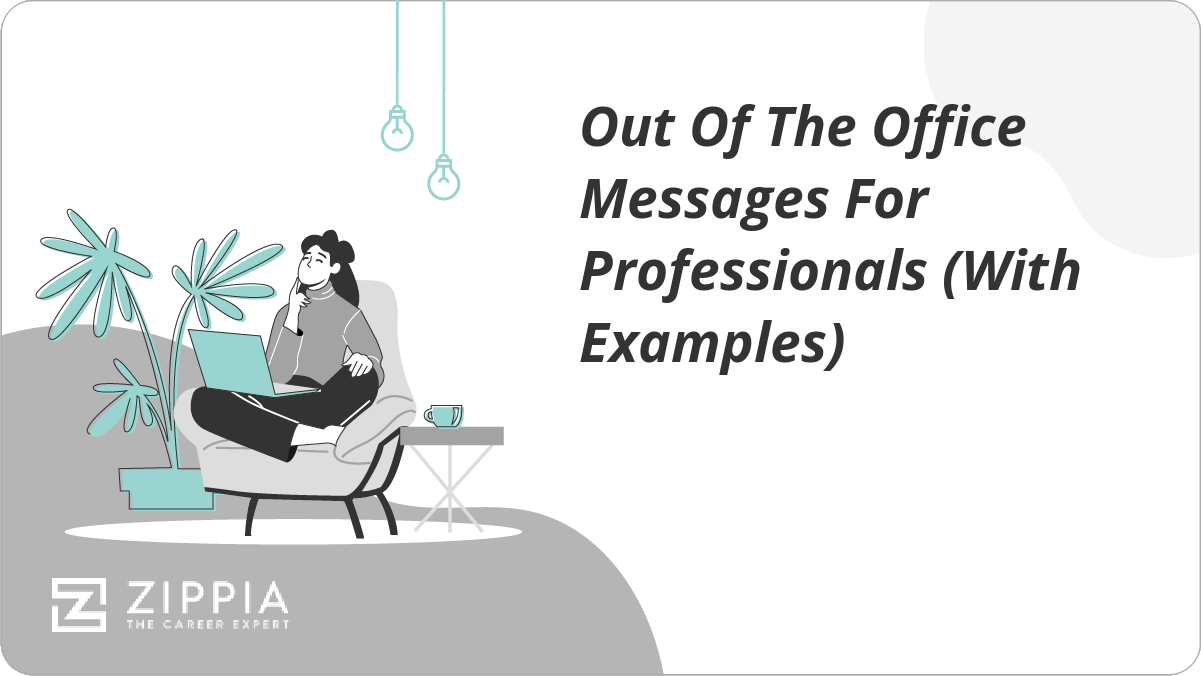- Soft Skills
- Most Common Skills
- What Are Soft Skills?
- What Are Leadership Skills?
- What Are What Are Hybrid Skills?
- What Are Teamwork Skills?
- What Are Communication Skills?
- What Are Organizational Skills?
- What Are Personal Skills?
- What Are Interpersonal Skills?
- What Are Decision Making Skills?
- What Are Negotiation Skills?
- What Are Creative Thinking Skills?
- How To Multitask
- What Are Adaptability Skills?
- What Are Internal Analysis?
- What Are Multitasking Skills?
- What Is Professional Networking?
- What Is Nonverbal Communication?
- What Are Critical Thinking Skills?
- Presentation Skills
- What Is Accountability?
- What Is Emotional Intelligence?
- Verbal Communication Skills
- Hard Skills
- What Are Hard Skills?
- What Are Technical Skills?
- What Are What Are Life Skills?
- What Are Social Media Skills Resume?
- What Are Administrative Skills?
- What Are Analytical Skills?
- What Are Research Skills?
- What Are Microsoft Office Skills?
- What Are Transferable Skills?
- What Are Clerical Skills?
- What Are Computer Skills?
- What Are Core Competencies?
- What Are Collaboration Skills?
- What Are Conflict Resolution Skills?
- What Are Mathematical Skills?
- How To Delegate
- Desired Traits
- What Are Skills Employers Look For?
- What Are Inductive Reasoning?
- What Are Problem Solving Skills?
- What Are Active Listening Skills?
- What Are Management Skills?
- What Are Attention To Detail?
- What Are Detail Oriented Skills?
- What Are Domain Knowledge?
- What Is Professionalism?
- What Are Rhetorical Skills?
- What Is Integrity?
- What Are Persuasion Skills?
- How To Start A Conversation
- How To Write A Conclusion For A Research Paper
- Team Player
- Visual Learner
- Aptitude
- High Income Skills
- The Most Important Professional Skills
- Specific Skills
- What Is Figurative Language?
- What Are Rhetorical Strategies?
- What Is a Subject Matter Expert and What Do They Do?
- What Is A Differentiation Strategy
- What Is Job Order Costing
- What Is Situational Analysis
- Plan Of Action
- Report Format
- Law Of Diminishing Marginal Returns
- Administrative Duties
- Giving A Presentation
- Organizational Behavior Management
- Deductive Reasoning
- Reflective Listening
Find a Job You Really Want In
- What Is Attention to Detail?
- Why Is Attention to Detail Important at Work?
- Examples of Attention to Detail Skills
- How to Improve Your Attention to Detail
- Attention to Detail in the Workplace
- Attention to Detail on Your Resume, in Your Cover Letter, and at the Job Interview
- Final Thoughts
- Sign Up For More Advice and Jobs
Having a strong attention to detail is an important skill to have. It can make you more effective in the workplace and is something employers are looking for.
In this article, we will go over what is attention to detail, why its important and examples of how to used it in the workplace.
Key Takeaways
-
It’s possible to improve your attention to detail, and use it in every aspect of your carreer.
-
Not everyone has this skill, so having it makes you stand out from other candidates.
-
It’s common to just say you have attention to detail, so it is important to show it in your resume.

What Is Attention to Detail?
Attention to detail is the ability you have to efficiently and accurately allocate your cognitive abilities to focus on a specific task or number of tasks. It means thinking through the details with a critical eye as well as minimizing distractions and learning how to focus on what really matters.
The term attention to detail is a common phrase that many job recruiters and hiring managers have seen time and time again on a resume. That’s why it’s not enough to just write that you have attention to detail on your resume. Expanding on this skill and giving specific examples is where the true value lies.
Why Is Attention to Detail Important at Work?
Having great attention to detail at work means you will minimize any errors or mistakes to happen. When mistakes happen, even small ones, can have potential huge impacts and setbacks for a job.
Employers don’t want someone who will cause any errors that will potentially give them any kind of set backs. Some benefits of having great attention to detail could include:
-
Producing high-quality work
-
Being efficient
-
Being trustworthy
Examples of Attention to Detail Skills
When you’re applying for a job and looking to communicate to your potential employer that you have great attention to detail, you can include it in different ways on your resume or discuss it in different ways in interviews.
This can include organizational, time management, analytical, observational, or active listening skills. Below are some skills you may have actively practiced that you should include on your resume as examples of attention to detail skills.
-
Proofreading and editing skills. This is one of the most common areas where you can discuss your attention to detail. Skills like proofreading or editing work require the individual to hone in on things like writing style, correct syntax and tenses, fact-checking, and adjusting grammatical errors.
Proofreading and editing can apply to many things such as standard operating procedures (SOPs), marketing content or copy, email writing, resume writing, article writing, and so on.
-
Expertise with numbers and number programs. Mathematical work is a skill that necessitates meticulous attention to detail. It requires high observations, quick mental computations and logic, organization, and clear thinking.
This area also includes programs such as Excel that highlight your expertise and attention to detail as it pertains to formulas or charts.
-
Design work. Strong attention to detail is not just for the left-brained. Attention to detail can be found in abundance in creative work as well.
Work in graphic design or any creative work that requires a high refinement of craftsmanship can easily showcase your attention to detail accomplishments, not to mention the great patience necessary to complete a project.
-
Time management. Paying close attention to detail is not just about getting work done accurately. It also involves budgeting your time appropriately so that you can meet deadlines and work efficiently.
Those who make daily to-do lists, religiously maintain their schedules, and track their own workflows are naturally paying close attention to detail.
-
Organization. Sure, having a decluttered desk devoid of distractions is part of what we mean when we say “organization.” But the other part of this is having an organized mind. Prioritizing tasks based on importance and urgency is a sign of a mind that pays close attention to the details and knows the value of each individual task.
-
Observation. People who are attentive to details are constant observers. They learn both from their own experiences and those they interact with and are constantly looking for ways to improve things. Being mentally present all of the time will help your ability to notice details that might otherwise go unnoticed.
-
Analytical skills. Being able to analyze a situation and solve problems effectively requires adept attention to detail. Identifying all of the moving parts of a project and synthesizing all of that information into a workable plan shows that you’re not only attentive, but also able to put that attention to productive use.
How to Improve Your Attention to Detail
Not sure if you have the experience you need to ensure you’re paying enough attention to the details? It’s not a problem. This skill can be improved over time and you can start today, at your current job, and even in your day-to-day life.
-
Improve organization. You can’t pay attention to detail without being organized. Ensure your calendar is up to date and that you have a good process for taking notes and setting reminders so you won’t forget.
For most people, the best way to stay organized is to ensure you have a tidy workspace and a filing system in place, whether it be paper-based or digital.
-
Create lists. It will be very rare for any professional to only have one thing to work on at a time. That’s why it’s so imperative to create lists and work against them. Keep a pen and paper nearby or use a digital version of a notebook, like Notepad.
-
Get into a routine. Building a routine is important to maintain your sanity, but it’s also important to be efficient why maintaining your attention to detail.
Routines will help you dedicate a specific amount of time to a given task so that you can balance your day well and ensure everything on your list gets done. This will help you make sure you stay focused.
-
Quality over quantity. While quantity may be important in some cases, quality is always king. Maintaining an appropriate workload will allow you to produce quality work that you are proud of and give you the time and space to focus on the small details.
-
Exercise your brain. Your brain is an amazing thing and can be trained to work in a variety of different ways. A good way to make sure you’re paying attention to detail is to play games that help train your brain’s focus. Logic games like Sudoku, Rubik’s Cubes, and Chess are all great for boosting your cognitive capabilities.
-
Practice meditation. Meditation has been proven to improve both your physical and mental health. Those who meditate regularly not only increase their ability to concentrate, but it also boosts your attention to detail and level of accuracy when completing projects.
Attention to Detail in the Workplace
Once you’ve snagged your dream job, attention to detail should not become an afterthought. Stay away from sloppy work and ensure you take care and attention to detail as you settle into your new role. Here are some ways to ensure you maintain attention to small details.
-
Show up. Be sure when you show up to meetings or simply for your workday that you are truly present. By being invested in your meetings, colleagues, and projects, you will be able to produce high-quality work.
Participate in conference calls and in team meetings to ensure your voice is heard, but also to capture all of the ideas and details you may need once the meeting is over. Active listening and note-taking is a great way to show your team and your managers that you are invested in your work.
-
Eliminate distractions. It’s sometimes difficult to concentrate when you have emails piling in or your phone is ringing off the hook. Because we live in a world where emails and phone calls are constantly at our fingertips, this can feel impossible.
If you are able, set aside certain times of the day to take phone calls, meetings, or look at your email. This will minimize distractions when you sit down to actually do a project so that you can give it your undivided attention.
-
Take care of yourself. Take breaks as often as you can. If you can get outside, ensure you get a breath of fresh air or some sunshine on your face. Stand up, walk around, and have a conversation with a colleague.
Make sure that you eat breakfast and lunch and sign off and on to work at an appropriate hour. Avoid checking your email or taking phone calls when you are on a break. Work breaks are essential for brain health and they will allow you to maintain your focus and improve attention to detail on projects for the entirety of the workday.
-
Don’t multitask. It might seem to be the opposite of productive, but in fact, multitasking diminishes your attention to detail. It’s impossible to pay keen attention to detail if you are thinking about something else while you are supposed to be working on a certain project.
Your accuracy and attention to detail will suffer if you work on multiple things at once, such as attending a meeting and trying to complete a project or a presentation. Ensure you are attentive to the task at hand, then move on to the next thing.
Attention to Detail on Your Resume, in Your Cover Letter, and at the Job Interview
-
Attention to detail on your resume. Your resume is the first impression your recruiter or hiring manager has of you. It’s imperative to make sure your resume is as clean and error-free as possible when you hand it over.
A messy, disorganized resume that is riddled with errors will most likely be tossed aside. Spend plenty of time going over everything you’ve written on your resume including grammar, punctuation, and formatting.
Next, ensure that your resume is relevant and appropriately organized. Ensure that your header is up to date and that you’ve spelled your basic details correctly, especially your phone number and email address so that your potential employer can get in contact with you.
See if there are spots where you can condense your information into a single sentence or phrase, especially for your earlier jobs. Consider cutting out unnecessary details that do not pertain to the job you’re applying for.
Be sure to sprinkle attention to detail throughout your job history. If you are able to include quantifiable results, be sure to include and specify why attention to detail was so important for that specific project.
As stated above, there are a variety of ways to do this without repeating attention to detail multiple times across your resume. Really show your recruiter or hiring manager how your attention to detail has been leveraged for results.
-
In your cover letter. In your cover letter, you can elaborate on these accomplishments. Similar to your resume, ensure your cover letter is error-free and get a second pair of eyes to look over it to make sure you haven’t missed anything.
Equally as important, ensure you are consistent with your formatting and any simple design you might have included. These small checks showcase your attention to detail without saying it outright.
If you want to show off your attention to detail in a cover letter, you’ll need to share specific examples of times when you were trusted with highly sensitive and complex tasks.
Bringing in quantifiable statistics to back up your excellent attention to detail (“saved $X,” reduced turnaround time by X%, etc.) can make your claims even more impressive to a hiring manager or recruiter.
Anything that shows that you were trusted to keep critical doucmentation of essential work, improved the quality of a process through your diligence, or were otherwise trusted with a project where details were key can make you stand out for your superior attention to detail.
-
At the job interview. The interview is your chance to provide some context for your application materials.
If you’re applying for a job where attention to detail is crucial, you can expect some questions addressing the skill. Questions like “tell me about your work style,” “How do you ensure your work has no mistakes?” all give you a chance to toot your horn regarding this skill.
Just as you would in your cover letter, be prepared with stories that highlight how you were trusted with complicated tasks with a bunch of moving parts and were able to never miss a detail.
Even if you have stories about times where you did miss important details, you can indicate how much you’ve learned since then by talking about improvements you’ve made in your ability to pay close attention to detail.
Not to mention that your preparation for the interview itself is a testament to your attention to detail. Show that you’re a diligent individual by researching the company thoroughly and being able to speak conversationally about the issues the organization is currently facing. Then, describe how you’re the perfect answer for those problems.
Finally, be an active listener during your interview. Pick up on nonverbal cues, pay attention to your surroundings, and adjust your strategy based on the interviewer’s personality. All of these things speak to your interpersonal skills as well as your attention to detail — a winning combination in the workplace.
Final Thoughts
There are many different facets to attention to detail. While it might sound like a simple thing that anyone can do, it actually requires a fair amount of thought and attention as you go through the job searching process, the hiring process, and ultimately gain employment at a company.
Ultimately, paying high attention to detail can benefit you not only in your career but in your personal life too.
- Soft Skills
- Most Common Skills
- What Are Soft Skills?
- What Are Leadership Skills?
- What Are What Are Hybrid Skills?
- What Are Teamwork Skills?
- What Are Communication Skills?
- What Are Organizational Skills?
- What Are Personal Skills?
- What Are Interpersonal Skills?
- What Are Decision Making Skills?
- What Are Negotiation Skills?
- What Are Creative Thinking Skills?
- How To Multitask
- What Are Adaptability Skills?
- What Are Internal Analysis?
- What Are Multitasking Skills?
- What Is Professional Networking?
- What Is Nonverbal Communication?
- What Are Critical Thinking Skills?
- Presentation Skills
- What Is Accountability?
- What Is Emotional Intelligence?
- Verbal Communication Skills
- Hard Skills
- What Are Hard Skills?
- What Are Technical Skills?
- What Are What Are Life Skills?
- What Are Social Media Skills Resume?
- What Are Administrative Skills?
- What Are Analytical Skills?
- What Are Research Skills?
- What Are Microsoft Office Skills?
- What Are Transferable Skills?
- What Are Clerical Skills?
- What Are Computer Skills?
- What Are Core Competencies?
- What Are Collaboration Skills?
- What Are Conflict Resolution Skills?
- What Are Mathematical Skills?
- How To Delegate
- Desired Traits
- What Are Skills Employers Look For?
- What Are Inductive Reasoning?
- What Are Problem Solving Skills?
- What Are Active Listening Skills?
- What Are Management Skills?
- What Are Attention To Detail?
- What Are Detail Oriented Skills?
- What Are Domain Knowledge?
- What Is Professionalism?
- What Are Rhetorical Skills?
- What Is Integrity?
- What Are Persuasion Skills?
- How To Start A Conversation
- How To Write A Conclusion For A Research Paper
- Team Player
- Visual Learner
- Aptitude
- High Income Skills
- The Most Important Professional Skills
- Specific Skills
- What Is Figurative Language?
- What Are Rhetorical Strategies?
- What Is a Subject Matter Expert and What Do They Do?
- What Is A Differentiation Strategy
- What Is Job Order Costing
- What Is Situational Analysis
- Plan Of Action
- Report Format
- Law Of Diminishing Marginal Returns
- Administrative Duties
- Giving A Presentation
- Organizational Behavior Management
- Deductive Reasoning
- Reflective Listening





